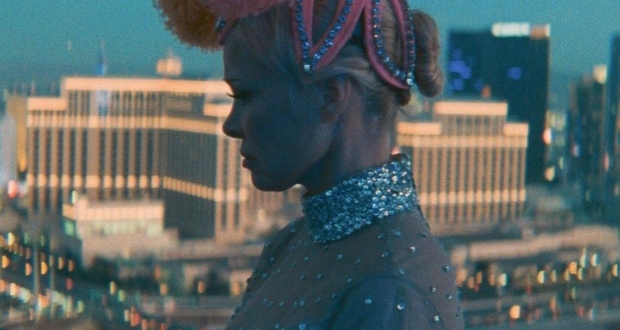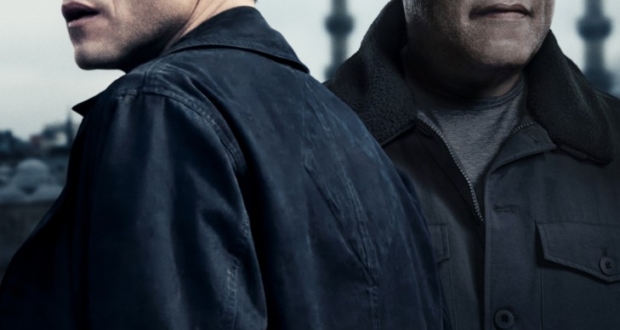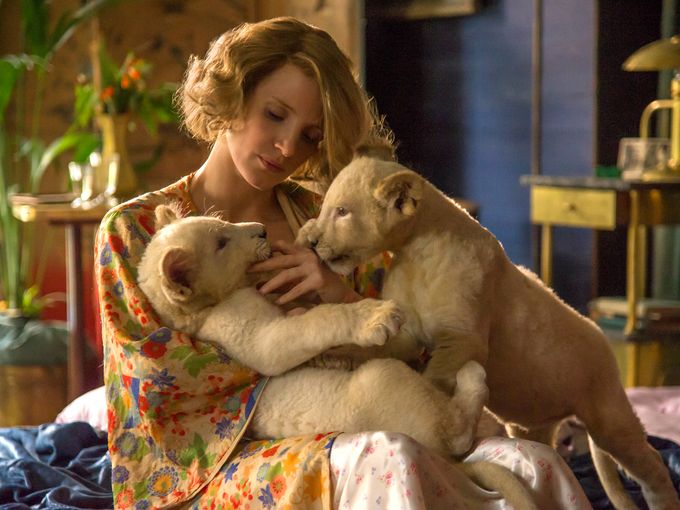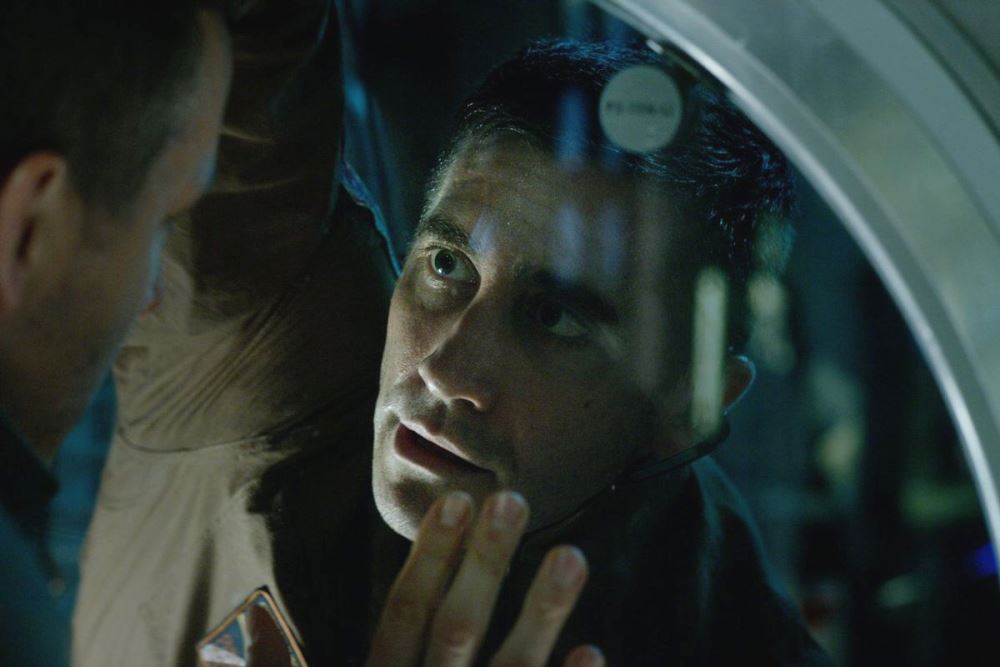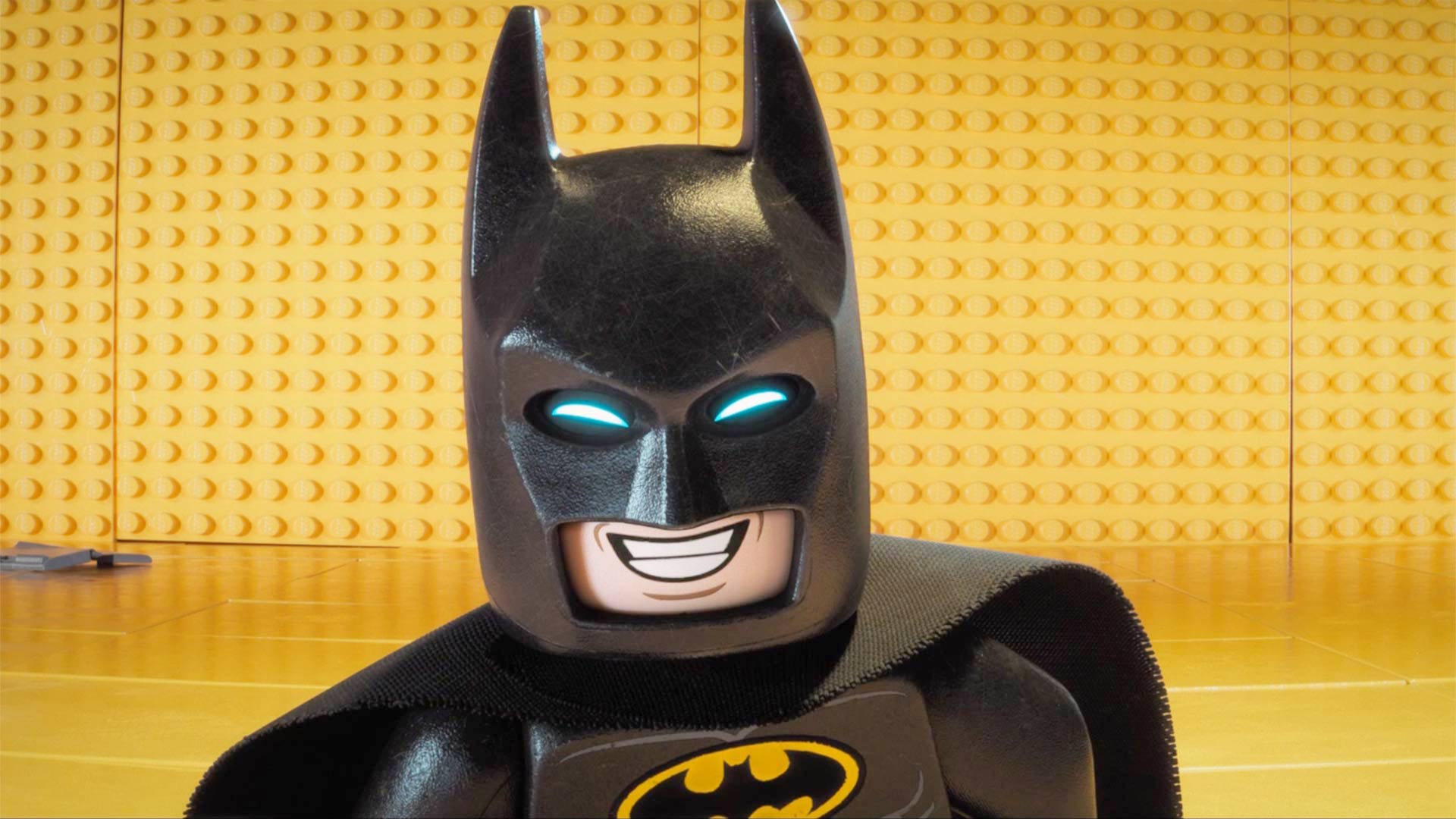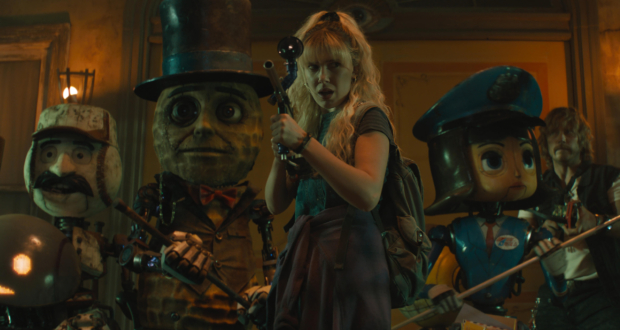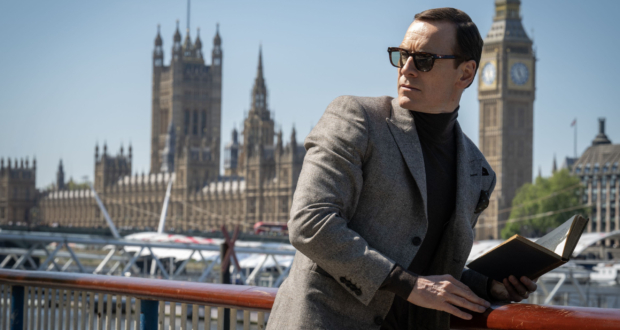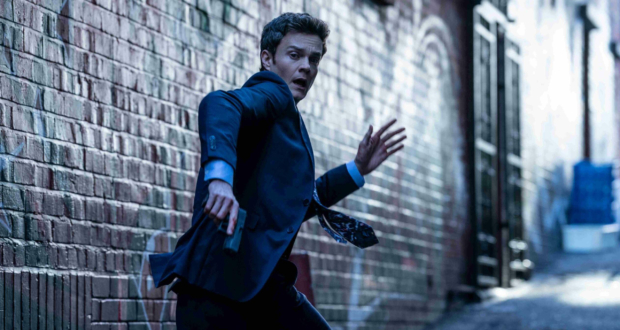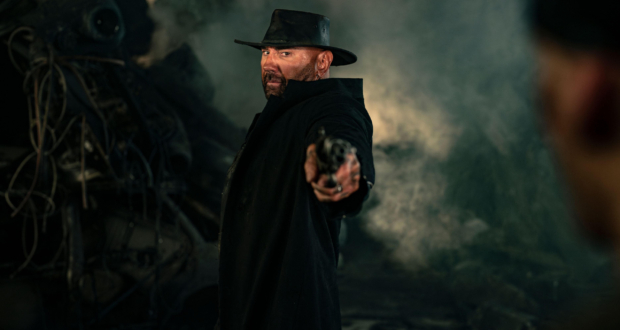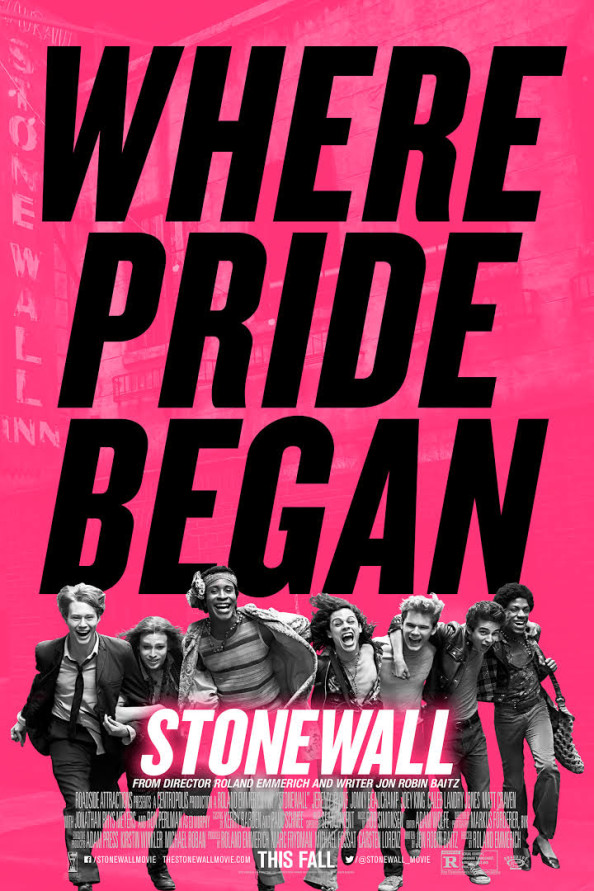
Genre: Drama
Directed by: Roland Emmerich
Starring: Jeremy Irvine, Jonathan Rhys Meyers, Jonny Beauchamp
Written by: Jon Robin Baitz
Synopsis: A young man’s political awakening and coming of age during the days and weeks leading up to the Stonewall Riots.
[springboard type=”video” id=”1564769″ player=”tmbg001″ width=”599″ height=”336″ ]
Stonewall isn’t what you usually would expect from Director Roland Emmrich. He isn’t blowing much up in this film, instead he attempts to shock with the explicit sex scenes and violence. Based on true events, the film is a loose depiction of the 1969 gay movement Stonewall riots that took place in New York City. The film focuses on it’s main character Danny Winters (Jeremy Irvine). Danny is a gay teenager from Indiana that is forced out of his town. He moves to New York City, which seemed to have openly gay communities at the time. Christopher Street is the place where Danny hopes to find his solace. Once he arrives, he quickly realizes that peace and comfort is the least of his issues, instead he’s in a struggle for survival.
Danny is a clean-cut All-American country boy (even though Irvine is a Brit). Not what you regularly would see on Christopher Street back in those days. He befriends a group of misfits. At the head of the group is Ray/Ramona (Jonny Beauchamp) a transgender person with a in-your-face kinda attitude. Ray is a polar opposite of the quiet and shy Danny, but they develop a close bond together. Ray looks out for Danny and becomes his protector.
The movie doesn’t shy away from strong sexual content or brutality. The scene where the police raid a local LGBT hangout and beat down the people there is fairly jarring. Danny is beaten down and made an example of by the cops, and it’s very unpleasant watching this. The sex scenes aren’t downright NC-17 rated, but they do more than just suggest sexual acts. Emmerich doesn’t shy away from showing Danny and Ray’s bruised up and beaten down bodies after acts of brutality done to them.
While the struggle of these young adults is showcased in the film, the focus on Danny’s individual story takes center stage. It feels as if Danny’s story is more important than others, and frames Danny as the face of this movement, when in reality the struggle was less vanilla and far more wide ranging throughout communities, genders, and age groups.
Irvine does nice work in the film. He doesn’t shy away from those risque scenes. For someone that doesn’t have an extensive body of work, he did a fine job as the lead in the film. Jonny Beauchamp is solid also as the flamboyant Ray. There is a vulnerability and compassion that Ray has that makes him a character you root for. His obsession over Judy Garland is noted repeatedly throughout the film. Jonathan Rhys Meyers plays Trevor, an activist that develops a fondness for Danny. Trevor is sleazy, and admirable. You don’t know if he’s a trustworthy guy or a creeper. I like Rhys Meyers as an actor, but the odd Christian Bale Batman voice he does in this film is borderline comical. Can someone explain to me why did he make that choice?
Overall, Stonewall is a nice story of friendships and standing up for your beliefs. The real life people that were depicted in the film such as Ed Murphy were only small supporting characters in the film. Had the focus been on the real people and less on the fictional story of Danny, this would have been a different movie. Had the film been named something else besides Stonewall and the last 15 minutes of the movie were cut out, the film could have easily passed for just being a story about a gay teenager in the late 60’s. I was made more aware of the Stonewall riots by this movie, but I wasn’t educated on it like I could have been if the focus was placed more on the movement rather than an individual story. Ultimately the film is just mediocre. Some shock value moments, but fairly mundane storyline, without any major historical emphasis. A missed opportunity by Emmerich to make a socially and historically significant movie relate to to the audience.
Rating: Rated R
Runtime: 129 minutes
Release Date: September 25, 2015 (USA)
Follow me on Twitter @JimRko
-
Final Score - 4.5/10
4.5/10



